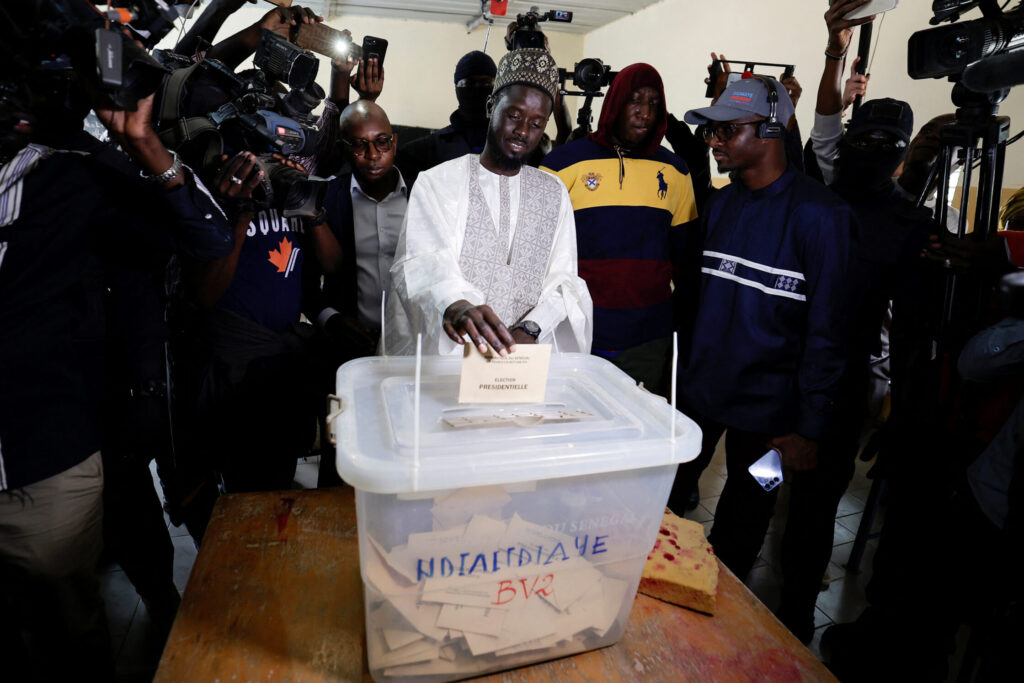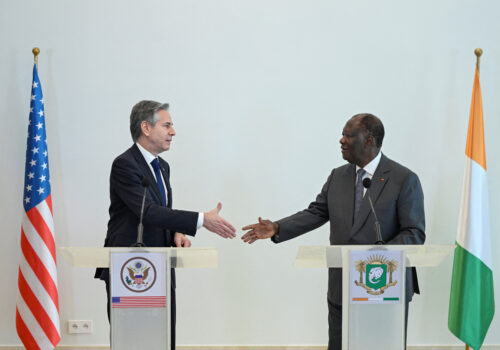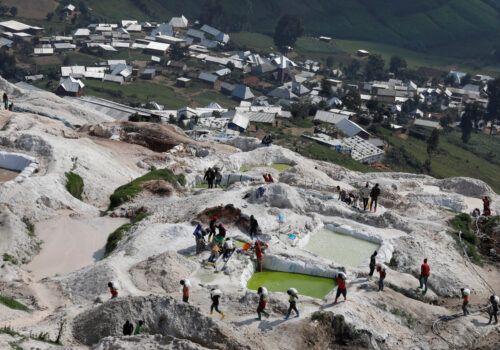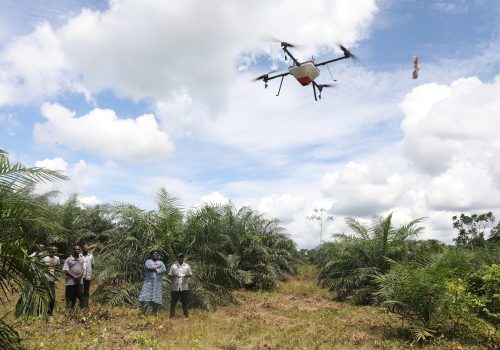On Monday, former Prime Minister Amadou Ba conceded defeat against Bassirou Diomaye Faye in Senegal’s presidential election. Faye’s path is now cleared to be the fifth president of the Republic of Senegal, and Ba’s concession—in which he congratulated Faye—immediately decreased the possibility of tensions arising from a disputed election. It is the first time that a candidate from an opposition party has won a presidential election in the first round. According to numerous reports, the election went smoothly, without any major incidents.
It is an epilogue to months of suspense in what has long been West Africa’s most stable and democratic country. Senegal has landed back on its democratic feet. It has demonstrated to the world that its reputation as a democratic bastion in its region remains strong.
It took a combination of factors to make this outcome possible, after the country lived for months under the scrutiny of observers from around the world.
Democracy is culture
For the Senegalese, democracy is not a slogan or even simply the rule of law. It’s a way of life. Journalists, intellectuals, youth organizations, families, religious communities—all strata of society are imbued with this democratic culture, as evidenced by the high voter turnout, the positive takeaways of international observers, and the presence of nineteen presidential candidates. But there is another important element that observers who are not familiar with Senegalese culture might have missed. There is an ongoing tradition in Senegal of open dialogue between the opposition and the outgoing majority, thanks to many mediators, including former Senegalese presidents.
For the opposition parties in Africa, the Senegalese election is a lesson. Boycotting an election in protest, instead of contesting it, is not always the best solution. Moreover, no one is irreplaceable. The fate of Faye, who emerged from relative obscurity to replace the former opposition candidate Ousmane Sonko at the last moment, proves this. The Senegalese will now get to know President Faye. But it will be necessary for the new president to distinguish himself beyond the slogan that emerged during the campaign: “Diomaye moy Sonko,” or “Diomaye is Sonko.”
For the putschists in the region, some of whom have strangely welcomed Faye’s victory, this election is a stinging refutation of their seizure of power by brute force. Faye may present a program of rupture with the outgoing administration, but the fact remains that he submitted to the vote of his people. Neither Colonel Mamadi Doumbouya of Guinea, nor Captain Ibrahim Traoré of Burkina Faso, nor General Abdourahamane Tiani of Niger had the courage to do.
In Senegal, change comes through the ballot box, not through weapons. While a few members of the Senegalese army committed the folly of whispering the names of the most eminent generals as a possible recourse, the armed forces remained stoic in their barracks, aware that their duties are not of that nature and never have been.
The outgoing president
The actions of the outgoing president should be noted here. Unlike some leaders in the region, Sall relinquished his power when it was time. He renounced a third term when he understood that his reading of the constitution on this subject was not shared by all Senegalese, despite pressure from his supporters. Then, at the height of the crisis over the postponement of the election, he complied with the decision of the Constitutional Council. It is only in a democracy with strong institutions that the president (and the national assembly) accepts the decision of a court that has just contradicted the head of state. Finally, Sall’s amnesty bill, which freed hundreds of prisoners, some of whom had been guilty of abuses and looting, displeased the members of his party, but he understood that opponents did not belong in a prison.
Undoubtedly, for Senegalese to elect Faye, a candidate whom they knew nothing of until two months ago, the power of “dégagisme”—or rejection of the current political class—had to be exceptionally strong. But as usual with outgoing presidents, it will take time for Sall’s full legacy both internationally and domestically to be fully understood.
During Sall’s presidency, Senegal led the African Union in 2022-2023, replacing Mali at the last minute. In his role as the African Union chairman, Sall brought important attention to the issue of food security during his meeting with Russian President Vladimir Putin in Sochi in June 2022, to the financing of African economies, and to the need for a permanent seat for the African Union in the Group of Twenty (G20), which was finally approved in September 2023.
In Senegal, Sall leaves an economic record that can be measured by the large number of major infrastructure projects undertaken during his tenure. This includes the new city of Diamniadio, as well as new trains, airports, stadiums, highways, and hospitals. Sall’s administration also spearheaded an emergency development plan for small rural communities. But in this country of eighteen million inhabitants, 75 percent of whom are under thirty-five years old, who have had to face economic consequences stemming from the COVID-19 pandemic and Russia’s war in Ukraine, it is the high cost of living that has given energy to the opposition. Youth unemployment and social inequalities have persisted, despite financial support for the poorest.
The incoming president
Faye takes office at a pivotal moment for his country. Important oil and gas projects are set to begin production later this year, potentially providing a boost to the country’s economy—and drawing interest from regional and global powers. At the same time, Senegal sits in a precarious region that has been hit by a series of coups d’état in recent years. In addition, the jihadist threat has never ceased, as evidenced by the regular arrests of terrorists by Senegalese military forces, which have been heavily mobilized at the border in recent years.
Faye campaigned on enacting a rupture on three levels:
- First, a break with Senegal’s former colonial power, France, by questioning the CFA franc and potentially introducing a new currency.
- Second, a break with the “resource curse” with the promise of a better distribution of revenue from oil and other natural resources.
- Third, a break with bad governance via institutional reform.
None of these will be easy, but the biggest challenge for the new president will undoubtedly be the one that all Senegalese presidents before Faye have faced as well: How to keep campaign promises and not disappoint the Senegalese youth, who have proven their ability to make the difference on election day.
Rama Yade is the senior director of the Atlantic Council’s Africa Center and senior fellow for the Europe Center.
Further reading
Tue, Feb 6, 2024
No more business as usual: The US needs a broader engagement strategy in West Africa
AfricaSource By Michael Shurkin
US influence in the Sahel has waned, and Washington needs to rethink its engagement there and in West Africa as a whole.
Mon, Mar 18, 2024
The critical-minerals boom is here. Can Africa take advantage?
AfricaSource By Alexander Tripp
The critical minerals discussion on extraction, national security, and supply chains will move past Africa unless the moment is seized.
Tue, Sep 19, 2023
Unlocking Africa’s agricultural potential
Issue Brief By
The ongoing digital revolution in Africa presents a valuable opportunity to revolutionize the continent’s food systems.
Image: Presidential candidate Bassirou Diomaye Faye, who is backed by Senegalese opposition leader Ousmane Sonko, casts his vote at the polling station at Ndiaganiao in Mbour, Senegal March 24, 2024. REUTERS/Zohra Bensemra



